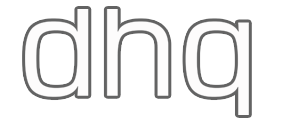[en] Curating Digital Spaces, Making Visual Arguments: A Case Study in New Media Presentations of Ancient ObjectsDaniel Price, University of Houston; Rex Koontz, University of Houston; Lauren Lovings, Independent scholar
Abstract
[en]
Curating is often seen as a mediation between artist, work, and audience, with the curator firmly at the center. The central role of the curator has been further emphasized with the rise of the curator as artist and the institutional and physical limitations of museum spaces. We argue that there are important alternative spaces of meaning to be developed between object and audience. Digital curating, in particular, allows for greater audience participation, both by expanding the potential audience and by allowing visitors to navigate through the virtual galleries under their own direction. We contend that by facilitating the site visitors’ creation of their own visual arguments, a new level of audience participation in visual analysis — indeed, in a fundamental intellectual and intuitive aspect of curating — is made possible. We explore how digital resources can be modified to allow for that contextual sense of making a visual argument through arrangement. An installation at the University of Houston debuted a new tool for digital content management and allows us to make some preliminary observations about the process of visual analysis, its role in curatorial practice, and explore future directions for work.
[en] Traveling the Silk Road on a Virtual Globe: Pedagogy,
Technology and Evaluation for Spatial HistoryRuth Mostern, University of California Merced; Elana Gainor, University of California Merced
Abstract
[en]
This article describes the authors’ experience teaching college students how to
use Google Earth to create atlases of historical Silk Road journeys. It argues
that a digital humanities classroom, with clearly defined assignments and
extensive evaluation, is an exemplary setting for establishing and verifying
genre conventions and review standards. Approaches that are developed for the
classroom can be modified for professional settings. The authors introduce
criteria for evaluating digital historical atlases as works of humanistic
scholarship, and suggest that digital humanists do the same for other
disciplines and genres as well.
[en] Now is the Future Now? The Urgency of Digital Curation in the
Digital HumanitiesAlex H. Poole, University of North Carolina at Chapel Hill
Abstract
[en]
In their seminal report, Our Cultural Commonwealth
(2006), the American Council of Learned Societies underscored the need for scholars
engaged in digital humanities work to leverage their access to data both to expand
their audience to the general public and to generate new research questions. “Now is the Future Now?” argues that the progress made in
digital humanities toward these goals has depended and will depend not only on
digital data, but also on their appropriate curation. The article defines digital
humanities, data, so-called Big Data, and digital curation. Next it examines digital
curation initiatives in the sciences and in the humanities that occurred before the
release of Our Cultural Commonwealth. It then considers
and evaluates the digital curation work undertaken in the sciences and in the
humanities after the report’s publication. In theory and in practice digital curation
has benefited substantially from practices developed and tested first in the natural
sciences and subsequently adapted for and extended in the humanities. Finally, the
piece explores the future work necessary to facilitate symbiosis between digital
curation and digital humanities. Collaboration and cooperation, transcending
geographical, disciplinary, and institutional boundaries, data sharing, policies and
planning, education and training, sustainability — all remain pressing issues in
2013.
[en] A review of Nathan Ensmenger, The Computer
Boys Take Over: Computers, Programmers, and the Politics of Technical
Expertise (Cambridge, MA, and London: MIT Press, 2010)Trisha Campbell, University of Pittsburgh
Abstract
[en]
This is a review of Nathan Ensmenger's The Computer Boys Take
Over: Computers, Programmers, and the Politics of Technical Expertise
(Cambridge, MA, and London: MIT Press, 2010).
[en] FairCiteAdam Crymble, Kings College London; Julia Flanders, Northeastern University
Abstract
[en]
Within the digital humanities, there are many approaches to citation. Every
discipline handles citation and authorship differently, and within the digital
humanities there are wide divergences of practice in the ways that credit is
assigned and made visible. However, there is also broad agreement that citation
practices need scrutiny and perhaps rethinking. The issue arises with particular
force when we consider how to cite digital humanities projects and tools.
Standard citation practices do not provide good precedents for making visible
the contributions of project personnel in these highly collaborative efforts.
There has been significant informal discussion and debate in recent years
concerning appropriate ways to credit this work, but no consensus has been
reached. FairCite (http://faircite.wordpress.com) was founded to promote this discussion
and encourage it towards practical, public outcomes.




